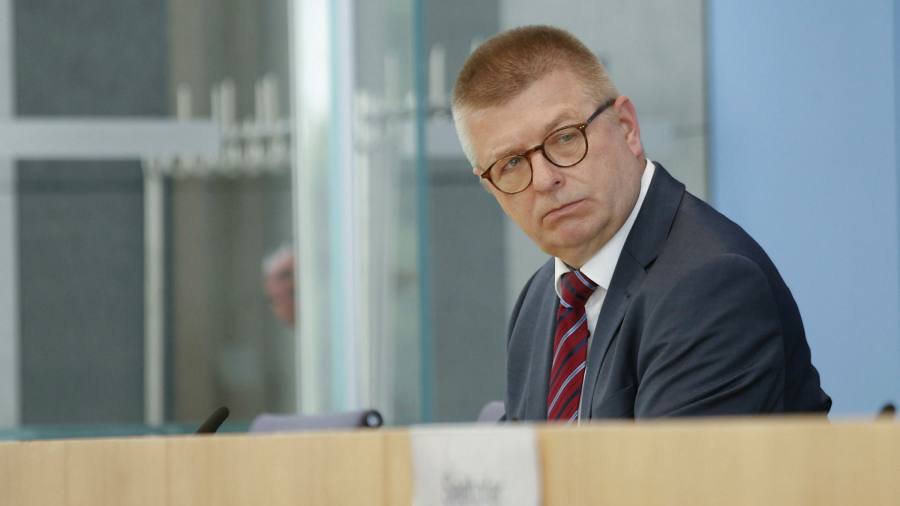[ad_1]
Germany’s spy chief has warned that foreign intelligence agencies could be seeking to influence September’s Bundestag election, with a spike in phishing attacks on German MPs and regional politicians.
Since February this year, Germany’s domestic intelligence agency, the BfV, has recorded “intensive attacks†by the “Ghostwriter†cyber group that appeared to be linked to a foreign intelligence service.
Thomas Haldenwang, head of the BfV, said the group had launched a wave of phishing attacks targeting the private email addresses of German MPs as well as regional legislators. Such attacks could be preparation for later “hack and leak operations†on social media, he said, although very few of them had been successful so far.
“Personal information obtained in this manner can be published in a selective and misleading way and also falsified with manipulated information in order to discredit individuals or parties,†Haldenwang said.
He also warned of the danger of “hack and publish†operations, in which cyber criminals publish disinformation on reputable news sites that they have attacked and compromised.
Officials declined to say which foreign states could be behind the attack, although privately many of them point to Russia.
Concern has been growing in Berlin that Russia might seek to interfere in the election, which will see the departure of Angela Merkel after 16 years as chancellor. Haldenwang said foreign agencies considered the election to be a “significant target†and were exploring ways to influence the outcome. But these efforts were still “at a low level,†he stressed.
US authorities charged 12 Russian intelligence officers in 2018 with hacking Hillary Clinton’s campaign and the Democratic National Committee during the 2016 presidential election. They said the Russians stole and leaked emails as part of a Russian government effort to interfere with the US election.
US intelligence concluded in March this year that Russia’s president Vladimir Putin authorised “influence operations†aimed at supporting Donald Trump’s re-election attempt in the 2020 presidential campaign.
Merkel said last year there was “hard evidence†that Russian forces were behind a huge hack of the German Bundestag in 2015 that also targeted her own emails. About 16 gigabytes of data were stolen in the cyber heist, including the emails of several MPs.
Germany’s federal court last year issued an arrest warrant for Dmitry Badin, a Russian man who allegedly works as a hacker for Russian military intelligence and who is believed to have been behind the attack on the Bundestag.
In 2017, Emmanuel Macron’s presidential campaign said it had been “the victim of a massive and co-ordinated hackâ€, after a large trove of emails was posted online, just hours before French voters went to the polls to elect a new president.
Nine gigabytes of data were posted by a user called EMLEAKS to Pastebin, a document-sharing site that allows anonymous posting.
[ad_2]
Source link





